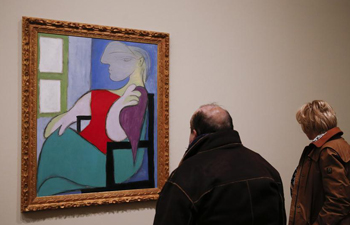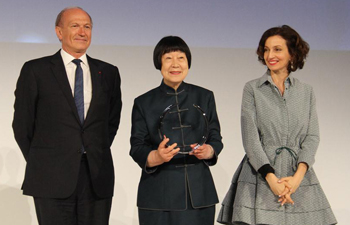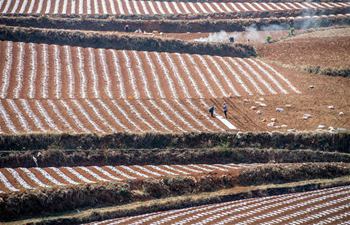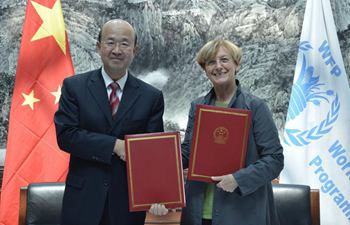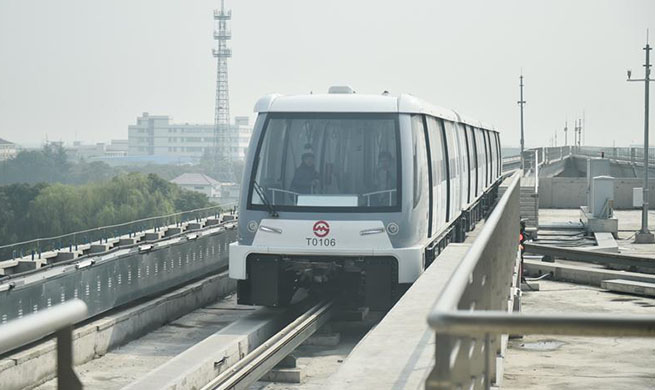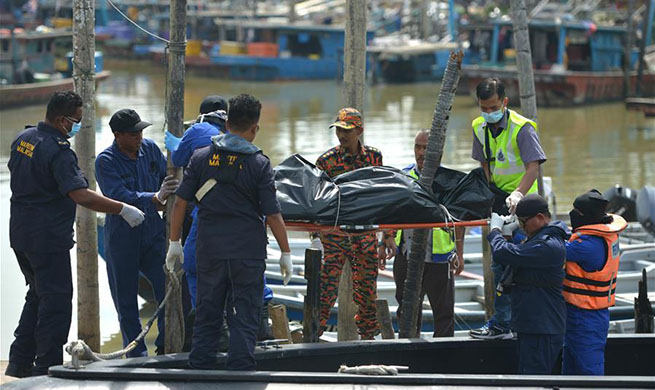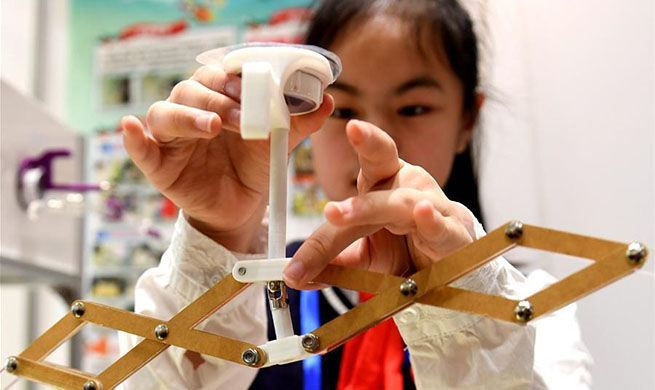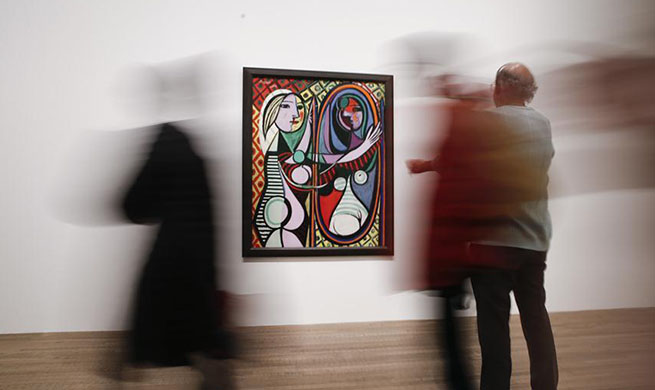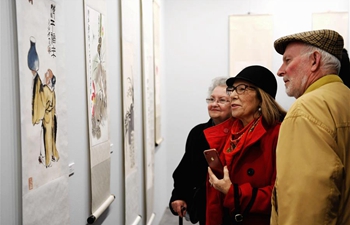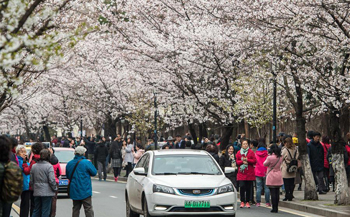DUBAI, March 24 (Xinhua) -- Saudi Arabia's Gulf neighbors Kuwait, Bahrain and the United Arab Emirates (UAE) position their economies increasingly in a way to bank on the Saudi Vision 2030 reform program.
The Vision 2030 poised to transform not only the kingdom from an energy-based country to a diversified economy, but also the entire Gulf Arab region.
Launched in April 2016 by Saudi Crown Prince Mohammed Bin Salman, Vision 2030 aims to erase Saudi Arabia's dependence on oil revenues by expanding the non-oil economy.
The sectors including banking, trade, tourism and a knowledge-based hi-tech market shall mushroom in the kingdom by investment into existing and new projects, among them the 500 billion U.S. dollars mega city Neom ("new") and Mustaqbal (Arabic for "future") at the Red Sea coast northwest of Saudi Arabia.
As one of Saudi Arabia's neighbors, Kuwait is located on its opposite coastline, in the northeast, and it aims to become the Gulf's northern gateway to the region.
The aim goes in line with the master plan of Kuwait Vision 2035 "by opening up to foreign direct investments and by positioning the under construction Mubarak Al-Kabeer (Arabic for "Greatly Blessed") Port on Kuwait's Bubiyan Island," Sheikh Nasser Sabah Al Ahmad Al Sabah, Kuwait's first deputy prime minister, said earlier on Tuesday at the Kuwait Investment Forum 2018.
The port shall later be connected through the planned Gulf Railway project to ensure the seamless transport of goods to Kuwait's neighbors, said Ahmed Al-Hassan, director-general of Public Authority for Roads and Transportation in Kuwait.
Saudi Vision 2030 is the biggest privatization scheme the Middle East has seen so far, hence smaller Gulf countries are eager to secure their slice of the growing non-oil cake.
Bahrain, on the other hand, has implemented its own Vision 2030. But with a total population of 1.35 million people, the smallest Gulf Arab state hopes to benefit likewise from Saudi Crown Prince's brainchild.
According to the Bahrain Economic Development Board, the vast majority of cargo arriving at Bahrain's ports is shipped to Saudi Arabia through the 25 km long King Fahd Causeway which connects the island state with its bigger brother.
Scores of Bahrain-based foreign banks have been serving Saudi clients through their beachhead in Bahrain for many years, among them Swiss private bank Julius Bar which in 2013 took over the Manama office of the U.S. bank Merrill Lynch.
In 2004, Julius Bar was the first bank ever starting operations in the Dubai International Financial Center (DIFC), when it received license number "000001" from UAE Vice President, Prime Minister and Ruler of Dubai Sheikh Mohammed Bin Rashid Al Maktoum.
DIFC Governor Essa Kazim said "Saudi Vision 2030 is definitely an opportunity for the DIFC," adding that "since its inception in 2004, scores of financial firms have used their foothold in the DIFC as a stepping stone to do business in Saudi Arabia."
Dubai is also a preferable beachhead for Saudi financial entities to reach out to the globe as the emirate harbors Dubai International Airport, known as DXB, the world's busiest civil aviation hub in relation to international travelers.
In addition, Saudi Arabia is currently completing with the King Abdullah Financial District its own financial center in the capital Riyadh, rivalling Dubai's and Manama's duopoly as the leading bank hubs in the Gulf region.




